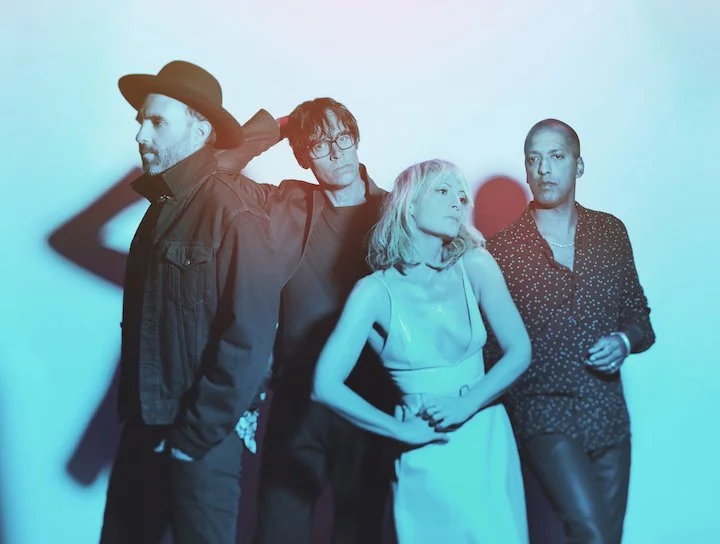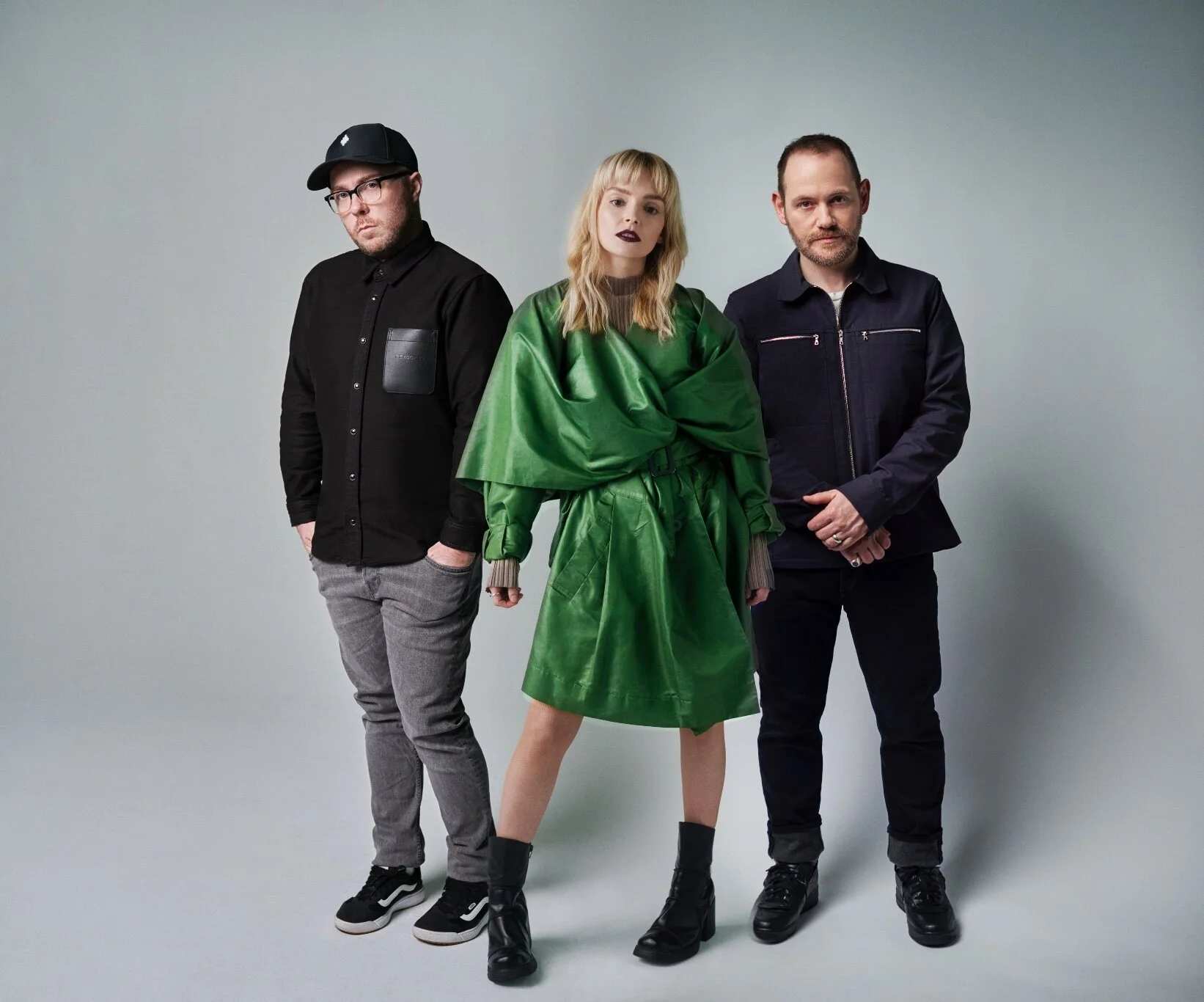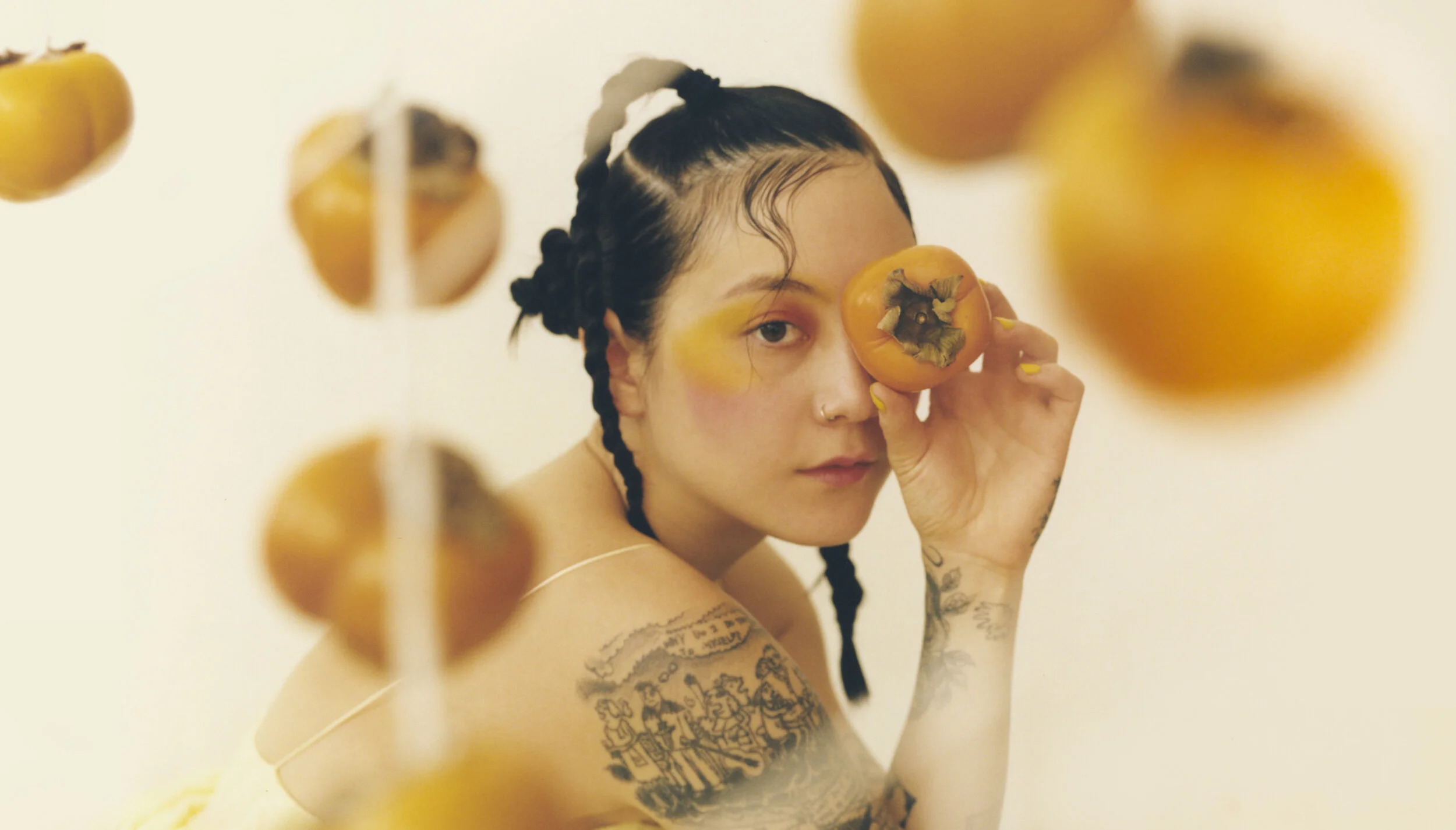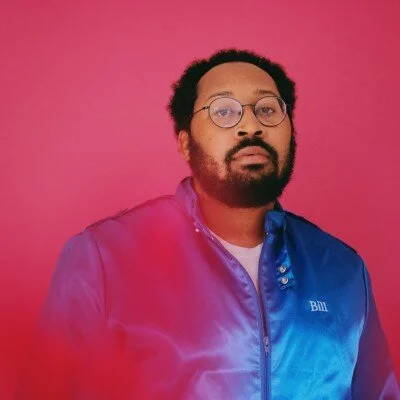Sadie Dupuis (Speedy Ortiz, Sad13)
“If I sit on my couch or sit at the living room table, it's so much less intimidating to get into a new project. I don't think I'm working, so it doesn't feel scary.”
For Sadie Dupuis, whose life is filled with writing projects, the key to the writing process is to pretend that you’re not really working.
Sadie Dupuis has a studio in her house where she does most of her work for her band Speedy Ortiz and her solo project Sad13. Once she’s down there, she has no trouble getting into the flow of the creative process; in fact, she often has to tell herself to take a break so that she doesn’t work through the night.
The hard part is getting started down there in the first place. She often find her studio “overwhelming and stressful.” It puts too much pressure on her. And who wants to feel overwhelmed and stressed at the start of a project? Her solution is brilliant: she starts on her couch or her table, which she finds less intimidating because it doesn’t feel like work there. Then, she says, “I'm excited to go down to the basement and continue my work.”
I’ve been in awe of Sadie Dupuis’s talent since I discovered Speedy Ortiz. Besides her work as the songwriter/founder of Speedy, she has an MFA in poetry from UMass Amherst. She published an acclaimed book of poetry in 2018 called Mouthguard and gave readings at colleges around the country supporting it. She runs her own record label called Wax Nine. She edits a poetry journal, and she’s published in various magazine. I know there’s much more, but this is clear: Dupuis is an outstanding writer of many genres and a rare talent, and I’m looking forward to seeing which one will be her legacy. What am I thinking? It’ll probably be all of them.
Dupuis’s solo album under Sad13 is called Haunted Painting, and it comes out September 25. It’s terrific. Read my interview with Sadie Dupuis, and you can also watch the video version below. The transcript has been edited for length and clarity.
You published your poetry collection Mouthguard in 2018. When we talked in 2016, you said that you keep the songwriting process and the poetry process separate. Is that still true?
A
I think I have the same answer now as I did then, which is that there was one time when I took a line from a scrap poem and put it somewhere in a song, but there's not much overlap for me.
I do use the Notes app on my phone when I think of a cool phrase. If I'm stuck for something in a song or in a poem, I'll definitely check that out and see if there's anything worth adding. But if I'm writing music, the lyrics tend to be the last thing I do, and I'll write to the music. It would be hard for me to just write a bunch of words and then try to adapt them to music that’s already written. The music dictates what sort of lyrics would work rhythmically and vowel-wise.
I have to ask you about your album titles, like Foil Deer, Twerp Verse, and now Haunted Painting. I’ve always loved saying them, but I couldn’t figure why. Then suddenly it dawned on me: they are wonderfully poetic. The two words sound so good together.
A
With anything I publish, I'm trying to find words and phrases that sound good or look good to a reader. With Foil Deer, what I used to do a lot on tour was go to art museums. I’d take a bunch of notes and wrote a bunch of poetry that way. The foil deer was a big sculpture of literally a golden deer that I saw in Amsterdam. I loved the image of this golden deer and wanted to use it. So I actually had a title for the album before I'd really written any of the album.
It was the same deal with Haunted Painting. I was in Seattle for a poetry reading just over a year ago, and I went to the Frye Gallery. They have one big room with all these portraits that are curated in sort of a congested way that I really like when I go to museums. There's tons of portraits of a lot of creepy looking women in this one room. There's one by Franz von Stuck of this dancer named Sahara, which I didn't know from looking at the painting. It's not on the title. She's an interesting early 20th century figure as well, but I really love the painting. She looks like a vampire in the way that she's portrayed. It has a lot of strange and dark energy attached to it that I was transfixed by. So I thought, All these paintings are so haunted. Again, I had the title before I'd really done much writing for the album at all.
Do you go to a lot of art galleries while on tour? And do they often serve as inspiration for your writing?
A
That's one of my favorite things to do on tour. In the early days of Speedy Ortiz, when it was very much DIY touring that we'd routed and booked ourselves, I had more time to do things like that. But any time we're on a support tour, we're following a bus, which doesn't really leave time to hang out in the city to check out the museum.
If I see something there and it inspires a cool phrase, I'll take a note of it. Saskia Hamilton is a poet that I studied under as an undergrad, and she always had us go to the MoMA and take notes for poems. I always liked doing that. I have a hard time with activities that feel aimless. I'm not good at just wandering around and taking things in. I have OCD, and I it makes it hard for me to just enjoy things for themselves. So I think in some ways taking notes at a museum helps me do a relaxing thing that I might not otherwise.
We’ve both taught writing on the university level. One of the things I always told my students was that the writing process is always taking place. It’s happening when you’re eating, sleeping, walking, talking, listening, running, whatever. It sounds like that’s the case with you.
A
I think that's fairly true for me as well. I can set aside dedicated time to write, but generally that time is more for organizing than actually generative. And that's why I try to take notes of any ideas that come up. Because if I'm just sitting down for an hour, I'm going to come up with things, but they might not be the great things that come to you while you're driving or in the shower. I do a lot of voice memos and notes on my phone or in a notebook. And then when I have the time to be working on writing, a lot of it is reviewing and organizing those notes and seeing where I they could fit with one another.
“If I’m just sitting down for an hour, I’m going to come up with things, but they might not be the great things that come to you while you’re driving or in the shower.”
Do you think boredom is an important or even necessary component to the creative process?
A
I don't know if it's boredom necessarily, but certainly my brain is more receptive to making things up when it's relaxed or on a long highway drive. I got really into swimming a few years ago. You spend an hour in water doing something repetitive and rhythmic, and you get stuck with ideas. So I do wind up processing a fair amount of stuff when I'm not actively trying to create something. I like being in water, and I think it can be inspiring. But I think being removed from devices is a big creative help.
Is it important for a writer to write every day?
A
I have gotten into practices like that, but I'm not in one right now. It's not a sustainable everyday thing for me. I wrote a second manuscript that I'm just finishing up and starting to send to people. When I was working on it, I would certainly spend a little time on it every day. And I was able to keep that up for a number of months. But when I'm doing that, for example with poetry, I'm not really working on music. With the record that's coming out this year for sad13, I wasn't in a place where I could be writing music every single day, but I set certain parameters, like getting two songs done a month.
When I was working on Foil Deer, I thought, I'm going to write a song every day. And there have been times that I've been interested in that, but as I've gotten deeper into producing and finding that to be its own songwriting tool, that has become really central to my process. I can't just sit down for an hour and write a song because the programming, the drums and the synth are all part of the song. And I'm probably going to spend 20 hours just on writing and arranging all the parts. You could certainly wake up at 9:00 AM and go to bed at 5:00 AM the next day. But I'm learning to space it out a little more for the sake of my brain and health.
On days when you need to be writing but it’s hard to get motivated, do you use any tricks to get started?
A
In the past I have, but right now there's so much going on in the world that I'm not really interested in writing songs about my life. I'm more interested in creative projects that support other people's work. I've done some covers for compilations. I've been editing a poetry journal and helping put out Johanna Warren's album. But if I'm not in the mood to write, I don't feel pressure to, which is not to say I haven't felt that way in the past and won't feel that way again. But like so many writers of all disciplines. I am much better at setting those stipulations for myself. If there's some kind of deadline, like if I knew I wanted to get a sad13 album done, I can say to myself You can definitely write and record at least two songs a month.
It's really hard for me to want to work on new projects when I still feel like I'm finishing up the last one. So once the music videos are done for Haunted Painting, I have friends who have sent me tracks that they want me to add to, or that we've talked about collaborating on for years. And I feel like this is a great time to do something like that. I'm hoping once I'm freed of the burden of finishing the last project, it'll be more interesting to me to start working on some singles and collaborations and stuff.
I can compartmentalize, though. It was ok for me to work on a book because it wasn’t new music.
I remember being overwhelmed by the prospect of writing my dissertation for my PhD because it was so long. Then I read a book by a professor who talks about breaking that long writing assignment—in my case, over 200 pages—into something more manageable. So instead of 200 pages over the course of a year, it’s 10 pages a week fo 20 weeks. And that makes it easier.
A
I fully agree with that. I have OCD and was diagnosed also with ADHD this year, which was very surprising to me because I was always super academically motivated in school, and I had no problem hitting deadlines and doing a ton of work. And I don't think I realized that giving too much attention to something is also an attention disorder. So I think OCD and ADHD combined to make it so that when I have a task and I have a deadline, it can be really hard for me to remove myself from that until it's done. That's kind of the same way I work on songwriting and production.. I can get lost in the project to the detriment of other things, like getting up to use the bathroom. Forcing myself to think of it as three days of work rather than continuous work is helpful.
But being self employed is its own kind of battle. If it was someone else saying that we need to get the drums programmed today because tomorrow is your bass and synth day, it's very easy for me to adhere to other people's schedules. But when it's self directed, I have a tendency to just want to get it all done and dive into it, which isn't always the healthiest work choice.
How important is the idea of ritual to your creative process?
A
It's not important, but it should be. For instance, if I start working on music right now at 2:36 PM, it’s too late for me to start because I'll get so excited that I won’t go to sleep, even if it's 3am. My brain is too wired to do it. So starting on something in the morning is great. And also trying to divide up the tasks, because now I don't just sit down and write with a guitar. Not that I've totally ever done that, but it's not at all true anymore. Now I'm programming drums for what I think all the sections will be based on from what I'm hearing in my head. That alone is several hours of work. So I'll say, "Ok, drums and bass day, start in the morning, stop early enough so that I'm not going to be up all night thinking about wanting to add to it.” Those rituals are basically making sure I don't start so late that I get too excited.
Is there anything you need to have with you when you write?
A
I drink a lot of tea. I have a little workstation in my basement that's set up for audio related projects. Sometimes just going down there to work feels really overwhelming and stressful. It puts a whole bunch of pressure on me. But if I sit on my couch and program the drums or sit at the living room table, it's so much less intimidating to get into a new project. I'm tricking myself into thinking that I'm not really starting to work. Just playing around with some drum machines helps me out. I'm all for the table. It's the best place for me to work. I don't think I'm working, so it doesn't feel scary.
But we need those things, don’t we? I think it gives us a measure of confidence.
A
Yeah. Once I start up here, then I'm excited to go down to the basement and continue my work. But starting down there is harder than any other place for some reason. I don't want to become too aware of it, because then I'll get scared of working at this table or on my couch.
Do you still prefer the computer to pen and paper when you write lyrics?
A
I've done it both ways. I tend to do the computer. I'm more articulate typing than I am by hand. It's also just easier for me because I tend to print lyrics as like prose blocks. It's easier for me to see what word is boring, or what phrase could be tweaked.
photos by Natalie Piserchio
And how does your editing process differ between song lyrics and poetry?
A
There's a lot more freedom with poetry than there is in songwriting. Because if I’m subbing in a word in a song, I still need to make sure that I can sustain the right vowel sound that I'm hearing and that rhythmically whatever I'm subbing in is going to work. I'm very constrained by the structure of the song. In some ways, that makes it easier because there's only so many options that will fill that slot. With poetry, I tend to overwrite, which I think a lot of us do. If I'm writing poetry, which is a little easier or fun for me than songwriting these days, I can say, "Ok, I'm just going to write for an hour and see what happens.” I might have two or three pages at the end of that, and it's very easy to cut 90% of it. If you do that with a song, then you've just got to start over
Do certain topics inspire you to write poetry?
A
If anything, it's similar to songwriting for me in that I'm often starting with a phrase I think is great. And then based on whatever I'm thinking about that day, I'll try to figure out how to get from that phrase to the meaning of whatever's on my mind, which isn't hard to do because my mindset is going to inform what I write towards anyway.
Who are some of your poetic inspirations?
A
Dorothea Lasky is a really big one, as is C.A. Conrad. Also Dara Wier, who I studied with luckily. Morgan Parker is pretty huge for me. Jenny Zhang put out a book this year that's been one of my favorites. I just read a thing for WPRB, our semi local radio station, recommending Don Mee Choi, who has a book out this year called DMZ Colony that I really love. Those are some of my recent favorites. I talk about Melissa Broder all the time, and the way that she transitioned from poetry to essays to now fiction is interesting to me. I'm always excited by people who write across a couple of mediums.
How often do the things you read make their way into your songwriting?
A
In very aloof ways, I think. There's a song on the album that's coming out this year [that was inspired by] Trick Mirror by Jia Tolentino. Again, it's a song where I had a melody attached to a line and had sat on it for years, but I didn't know what the song would be about. I turned it into an allegory that's connected to some of the essays in her book.
I love the new album. What was the easiest song to write on it, and what was the most difficult?
A
There are a couple where I wrote the demos a few years ago. And it might just be the distance from them that makes me think like those were so easy. I think both "Market Hotel" and "Take Care" I wrote pretty quickly, but again came back to them years later and was able to revise them. So I wasn't starting from zero.
As far as the most difficult, I never like to think I'm going to give up on a song, but with "The Crow" I felt vexed while writing it. I've never felt like I was possessed by a song before and just trying to exorcise it, but I knew I was not going to feel good until that song was done.
What made it so difficult?
A
I don't even know how I explain it. You know when you have a migraine headache because a storm coming? That's how that song felt to work on. I felt cursed, and I needed to finish it. It took a few days of pretty intense, intense work.
Do you have a lot of unfinished song ideas around somwhere?
A
I have a ton of stuff stockpiled future albums. And it'll be fun to get to some of those. There's one song that, again, I made up in the shower. I went to Buenos Aires with my mom a few years ago. We went not so long after my dad died; once I lost one parent, I realized I needed to work more conscientiously on doing these kinds of things with my mom. So I made up this cool song in a shower on that trip; I got as far as programming drums and just knew it wasn't the right fit for this album. Maybe it will be a one off single. It sounds like the English Beat.
Of course, we have to end with what books you’ve read recently.
A
Sarah Gerard has a new book out called True Love that I love. I finally read Homegoing by Yaa Gyasi, which I've had just sitting in my house for a couple years. I'm used to being able to pick up books on tour. That's one of the things that I did a tremendous amount of on tour.
I haven't obviously been in a bookstore since February. I've been able to place online orders from the bookshops that I'd be supporting anyway, although one of my favorites has closed. But it's been harder for me to figure out what to read without those recommendations. I read Glitter Up the Dark by Sasha Gaffin, which talks about queerness and the gender spectrum across pop and rock music in the 20th century.
One songwriter told me recently that he reads multiple books at once because when he’s reading one, he can think about the other one. I never did that, but once he told me, I tried it. It’s amazing. Can you do that?
A
I can really only do it if they are very genre divergent. I recently read Ducks, Newburyport by Lucy Ellman book. It’s a thousand page run on sentence, all the thoughts of the woman who's narrating it. I could do like 30 pages a day max on that book. i was reading other things at the time, but generally nonfiction and poetry. So I can read nonfiction and poetry at the same time, but two novels would be tough for me to do at once.











Will Sheff believes in writing every day, first thing in the morning. But he’s also a firm believer in loafing.